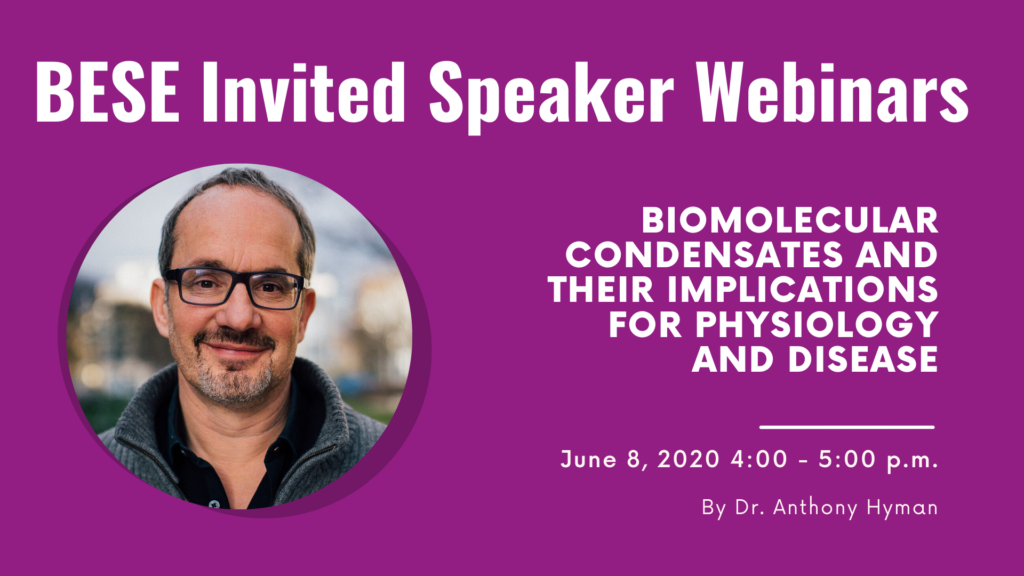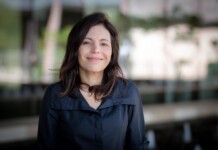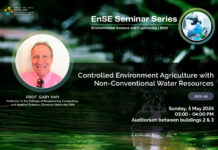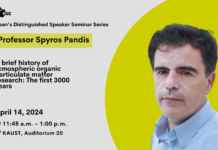
Biomolecular condensates and their implications for physiology and disease
By Dr. Anthony Hyman, Director and Group Leader at the Max Planck Institute of Molecular Cell Biology and Genetics.
Hosted by Prof. Wolfgang Fischle, KAUST
Monday, June 8, 2020
4:00 – 5:00 p.m.
Zoom
Abstract:
Cells organize many of their biochemical reactions by formation and dissolution of non-membrane-bound compartments. Recent experiments show that a common mechanism for such biochemical organization is phase separation of unstructured proteins to form liquid-like compartments. These compartments can subsequently harden to form compartments with new material properties such as gels and glasses. These compartments can be described by principles elucidated from condensed-matter physics and are therefore termed biomolecular condensates. I will discuss potential roles of phase separation in organization of cellular biochemistry and the role of aberrant phase separation in disease.
Bio:
Prof. Dr. Anthony Hyman is Director and Group Leader at the Max Planck Institute of Molecular Cell Biology and Genetics. He was born May 27, 1962 in Haifa, Israel and is a citizen of the UK. In 1984, he received his BSc first class in Zoology from the University College in London. From 1985 to 1987 he wrote his PhD on “The establishment of division axes in early C.elegans embryos” under the supervision of Dr. John White at the Laboratory of Molecular Biology, MRC in Cambridge, England. From 1988-1992 he carried out his postdoctoral research in the lab of Prof. Tim Mitchison at UCSF, investigating the mechanism of chromosome movement with in vitro approaches. In 1993, he became a Group Leader at the European Molecular Biology Laboratory in Heidelberg, before he moved to Dresden in 1999 as one of the founding directors of the Max Planck Institute of Molecular Cell Biology and Genetics (MPI-CBG), where he remains a Director and Group Leader today. In 2002, Hyman was named honorary Professor of Molecular Cell Biology at the Technical University Dresden. He was awarded the EMBO Gold Medal in 2003, and he was elected as a Fellow of the Royal Society in 2007. In 2011, Dr. Hyman was awarded the Gottfried Wilhelm Leibniz Prize, the most important research award in Germany. Most recently, in 2017, he received the Schleiden Medal from the German National Academy of Sciences Leopoldina. This award is given once every two years for outstanding findings in the field of cell biology. In 2019 Prof. Hyman was awarded the Carl-Zeiss-Lecture for outstanding achievements in Cell Biology and in 2020 he received the Wiley Foundation Prize in Biomedical Science.































